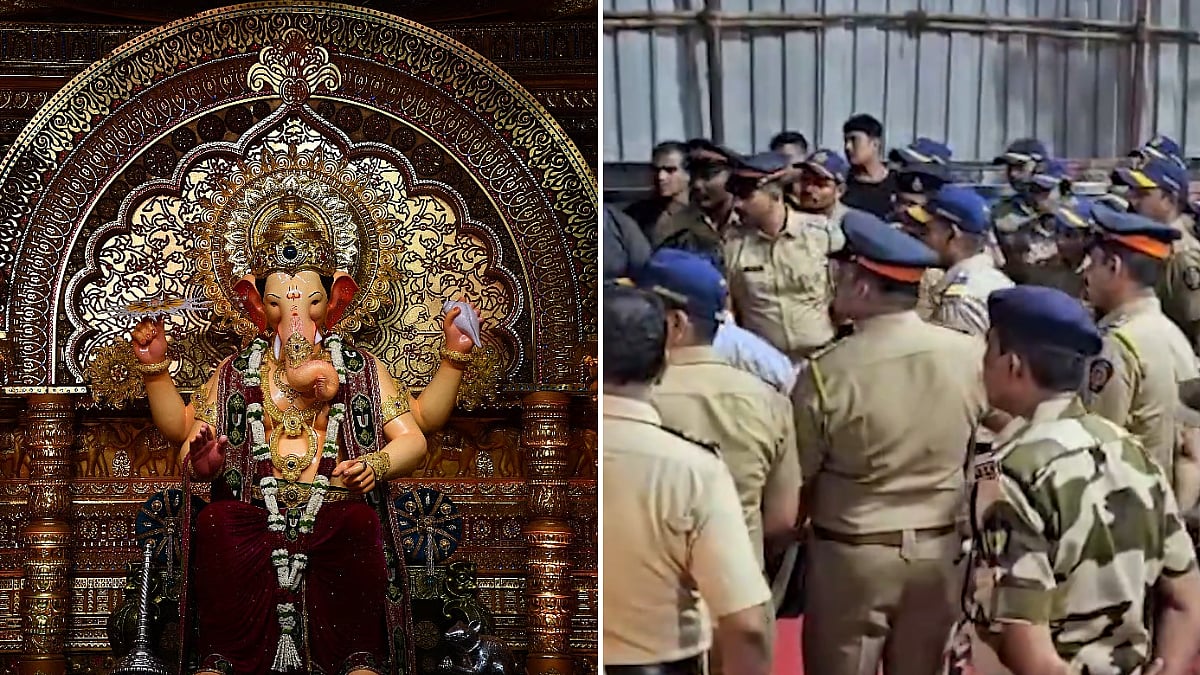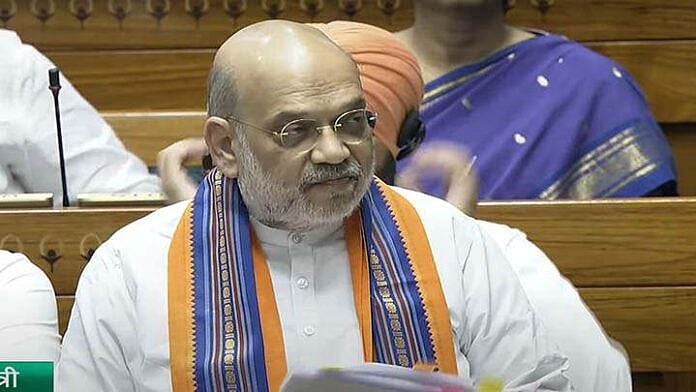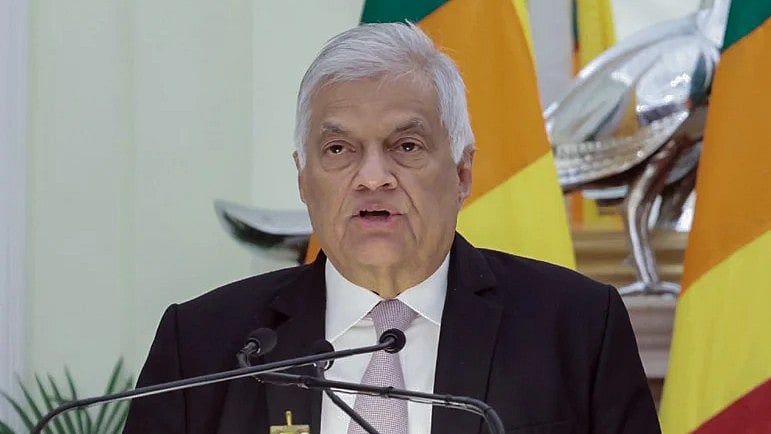Hinduism is a flowing river of spiritual awareness. It binds none and is bound by none. — Aldous Huxley in a letter to Jawaharlal Nehru
When a thought is a spirit and vice versa, it’s Hinduism. — French Nobel laureate Romain Rolland
Recently, a report by an independent think tank based in London has revealed the extent of discrimination and bullying faced by Hindu students in UK schools.
The report from the London-based Henry Jackson Society, authored by research fellow Charlotte Littlewood, education specialist Rishi Handa and Baroness Verma, is one of the first into the discrimination faced by Hindu kids in UK schools.
The harassment that Hindu kids in Britain face worsens as Islamist extremism comes into the picture, according to the report. One parent discussed the extent of its presence when kids were told that they aren't going to survive very long. “If you want to go to paradise, you’ll have to come to Islam... Hindus are the herbivores at the bottom of the food chain, we will eat you up.” The report further stated that Hindu rituals and deities were frequently ridiculed.
Muslims across the world are ever ready to play the victim card and use the term Islamophobic even if an oblique and seemingly innocuous comment on Islam is made. But hardly anyone notices when the same fate befalls Hindus.
Here, I must make it clear that I'm not a Hindu. Nor am I a defender of Hindu faith. I'm an apatheist, harbouring no likes or dislikes. My point is: When such deep-rooted prejudice against Hinduism prevails even in a seemingly advanced country like England, it's obvious that this (religious) hatred extends beyond the UK and could be a far bigger phenomenon than what meets the eye.
When Dr Sarvepalli Radhakrishnan was a young boy studying at a Christian missionary school at Tirupati and later at Voorhees College, Vellore, his Christian teachers would often make fun of Hinduism and call it primitive vis a vis Christianity. This perturbed young Radhakrishnan who would argue tooth and nail with his teachers and try to convince them that they were wrong in their understanding of Hinduism. As luck would have it, the exceptionally brilliant Radhakrishnan went on to become the Spalding Professor of Eastern Religions and Ethics at Oxford. There he'd systematically defend Hinduism and expose the humongous ignorance of the Westerners regarding not only Hinduism but also about all the Eastern faiths and belief systems. He stated, “Hinduism is more a way of life than a form of thought. While it gives absolute liberty in the world of thought, it enjoins a strict code of practice. While fixed intellectual beliefs mark off one religion from another, Hinduism sets itself no such limits. Intellect is subordinated to intuition, dogma to experience, outer expression to inward realisation. Religion is not the acceptance of academic abstractions or the celebration of ceremonies, but a kind of life or experience of reality.” By emphasising conduct, Radhakrishnan did not deny belief. In fact, he provided one of the most extensive lists. His emphasis is on the absolute freedom of belief allowed within Hinduism — where the questioning mind is known as the seeking mind, rather than the errant mind.
The amorphous nature of Hinduism makes it all-encompassing and boundless. It doesn't define limits like the Semitic faiths. Rather, it pushes the limits. This magnanimity of spirituality is indigestible to the adherents of Semitic religions who are inured to thinking and working within set limits and fixed premises. That's why Hinduism is often ridiculed by the ignorants as a polytheistic faith with paradoxical views and teachings. They don't understand that its polytheism is not literal but symbolical. In the words of yet another Spalding Professor of Eastern Religions and Ethics at Oxford, Dr Bimal Krishna Matilal, “Polytheism of Hinduism is just one of the beliefs out of a plethora of beliefs layered around the Eastern Consciousness.” Sir Edwin Arnold put it succinctly when he wrote about Hinduism in the prelude to The Light of Asia (English translation of Ashvaghosh's Buddhacharita): “Veil after veil will lift but there will be veil after veil behind.” What a sublime description in such few words!
Ancient Indian culture not only admitted boldly, but also accommodated the variety of human nature, variety of tastes, views, approaches, etc. The philosophy of religion should recognise this manifoldness of the human mind, this variety of equally viable views, even “manysidedness (Pluralism or Anekaantvaad of Jainism) of the total truth”.
If we can discover the deep structure, so to say, of each great religious tradition, an awareness of the fundamental unity of man may emerge from this discovery, which would be extremely valuable in a world where we have frequent cases of genocides and pogroms in the name of religion/s.
Socrates said in his Apology, “The unexamined life is not worth living.” Sanskrit philosophers say, “yuktisiddhaM vacho grAhyam”. Whatever is consistent with reason should be accepted even if it's spoken by a child or a parrot and whatever is inconsistent should be rejected even if said by a patriarch or even by the Buddha himself. This forms the Ethos and Ethics of the Eastern belief system.
Rudyard Kipling's famous line, “East is East and West is West and never the twain shall meet” is most ideally illustrated in terms of Western attitude towards Hinduism of the East. Like sociological cultural relativism, this is religious relativism of the West that puts a barrier between the two diametrically opposite religious thought processes. Whether Islam or Christianity, the aspect of consciousness is missing in both the faiths. So, it’s natural for a Christian, Muslim or a Jew to think in a purely religious way. But Hinduism works on the level of consciousness: Chetanasya Dharmvitanam (when consciousness works as a religion). Pristine Hindu consciousness is inherently spiritual by nature. It accepts all types of views and discards none. Such freedom of conscience and blossoming of spirit cannot be conceived by a western mind. That's why Hinduism is still an indefinite hotch-potch to the Occidental consciousness. It’s time we all understood that the essence of a religion, let that be any religion, is of cardinal importance, and stopped criticising the faiths of others. We all have flaws at all levels.
Sumit Paul is a regular contributor to the world’s premier publications and portals in several languages










